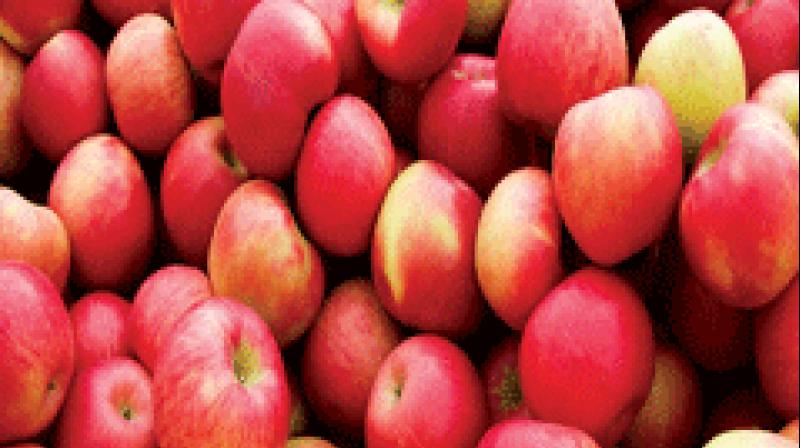Apples rot in Kashmir orchards, as lockdown puts economy in tailspin
Apples are the lifeblood of Kashmir’s economy, involving 3.5 million people, around half the population of the state.

Sopore: It’s harvest time, but the market in the northern Kashmiri town of Sopore - usually packed with people, trucks and produce at this time of year - is empty, while in orchards across India’s Jammu and Kashmir state unpicked apples rot on the branch.
In one of the world’s largest apple growing regions, a weeks-old lockdown imposed after Prime Minister Narendra Modi dramatically abolished the state’s special constitutional status has cut transport links with buyers in India and abroad, fruit growers and traders say, plunging the industry into turmoil.
Modi sold the move as a way to spur growth by integrating the state with the rest of India. But, for now, the unrest that has come in the wake of his government’s action has upended the economy, further fuelling resentment in the Muslim-majority territory where an armed revolt against India rule has ebbed and flowed over 30 years.
At dawn late last week the market in Sopore, a town known locally as “Little London” for its lush orchards, big houses and relative affluence, was deserted, its gates locked.
“Everyone is scared,” a lone trader, rushing to an adjoining mosque for morning prayers, told Reuters. “No one will come.”
Apples are the lifeblood of Kashmir’s economy, involving 3.5 million people, around half the population of the state.
In a surprise move on August 5, just as the harvest season as getting under way, the government abrogated provisions in India’s constitution that gave the Jammu and Kashmir partial autonomy and stipulated only residents could buy property or hold government jobs. Strict movement restrictions were imposed simultaneously, and mobile, telephone, and internet connections snapped.
The government said the immediate priority was to prevent an eruption of violence in Kashmir, where more than 40,000 people have been killed since 1989, and that curbs are slowly being eased, including the opening up of landline phones.
Further out, the government has promised rapid economic development and plans an investor summit later this year to attract some of India’s top companies to the region, create jobs and lure young people away from militancy.
In the short-term, however, farmers and fruit traders say the clampdown is stopping them from either getting their produce to market or shipping it out to the rest of India. Some say they have also been threatened into stopping work by militant groups.
In orchard after orchard surrounding Sopore, apples hung rotting on trees. “We are stuck from both sides,” said Haji, a trader, sitting inside a sprawling two-storey house in Sopore. “We can neither go here, nor there.”
Businesses reeling
Business people who spoke to Reuters say it is not just the fruit industry that is reeling - two other key sectors of Kashmir’s economy, tourism and handicrafts, have also been hit hard.
Shameem Ahmed, a travel agent who owns a houseboat in the summer capital Srinagar, said this year’s tourist season was completely wiped out.

